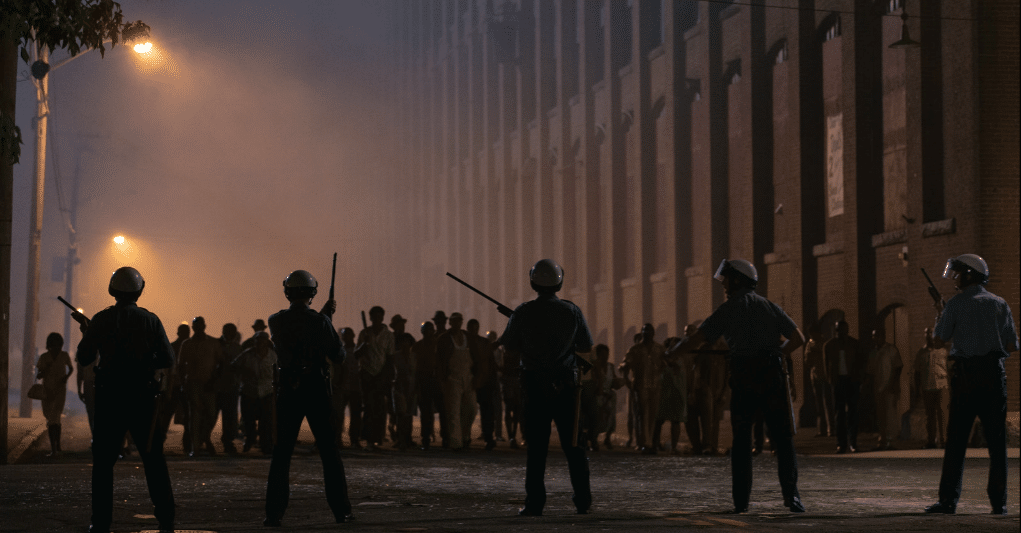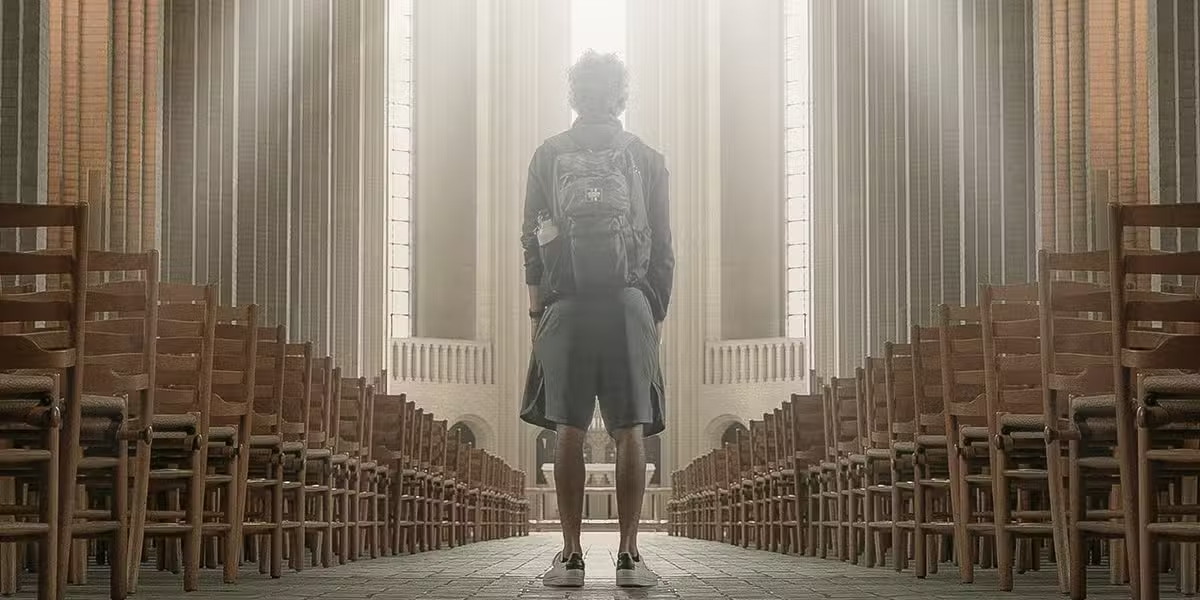Detroit
On July 23, 1967, what would become known as the “12th Street Riot ” erupts in Detroit, Michigan, when police raid an unlicensed bar in the early morning hours. The angry cops treat the black patrons like criminals and herd them outside. A crowd gathers, a store window is smashed, and an uprising is born from years of mistreatment by police, housing segregation, and a lack of jobs, opportunities, and education. Five days later, 43 people are dead and 1,189 people are injured.
Cut to the Algiers Motel on the periphery of the violence, where Larry Reed (Algee Smith), the young lead singer of a new musical group called The Dramatics, rents a room for the night. The group was prepared to perform after Martha and the Vandellas, when the concert is canceled because of rioting.
As they hang out with other young black teens and two white girls, a 17-year-old shoots caps from a toy gun at the National Guard 300 feet away. Suddenly, three Detroit policemen, a National Guardsman, and Melvin Dismukes, a local store security guard, descend on the motel room. Led by Officer Krauss (Will Poulter), the cops begin a night of terror while Dismukes, who is trying to defuse the situation, becomes a scapegoat for the carnage perpetrated by cops.
Oscar-winning director Kathryn Bigelow’s latest reality-based film uses the Detroit riots as a backdrop and focuses on events at the motel. In this film, written by Mark Boal, she makes this historical event in a decade of racial unrest deeply relevant today. The ensemble acting is superb. The camera work and editing make the audience feel the terror of those five days in July
over 50 years ago. The only negative is that the trial of the police and Dismukes at the end feels tacked on.
Not yet rated, R ⦠Language, racial violence, police brutality, peril.
Whose Streets?
Set in five parts and framed by quotes from Martin Luther King Jr. to Maya Angelou, Whose Streets? is a powerful, gritty documentary about the shooting death of unarmed teenager Michael Brown by a white police officer in Ferguson, Missouri, on August 9, 2014, and the civil unrest and protests that followed. It both horrifies and inspires as the citizens of Ferguson and
those who were a part of the demonstrations push back against institutionalized racism of the police by the US Justice Department. The Ferguson uprising started the “Black Lives Matter ” movement.
Whose Streets? does not pretend to be objective or chronological. It seeks to reveal the heart and persistence of a people who will not be silenced in the face of another police shooting of an unarmed person of color.
Filmmakers Sabaah Folayan and Damon Davis were there. They “know this story because they are the story. ”
Not yet rated ⦠Racial violence, police brutality, military and war violence, language.
Maudie
As the credits rolled at the end of this biopic of the Canadian folk artist Maud Lewis (1903â1970), I felt certain I had just watched one of the best films so far this year.
The film opens with 34-year-old Maud (Sally Hawkins), nearly crippled from rheumatoid arthritis, learning that her miserly brother, Charles (Zachary Bennett), has just sold the family home, leaving Maud at the mercy of her overbearing Aunt Ida (Gabrielle Rose). At the general store in their rural Nova Scotia town, Maud sees a notice for a housekeeper posted by a local fisherman,
Everett (Ethan Hawke). He has a reputation for being surly. She gets the job and must live in his rather ugly two-story shack.
Maud finds paint and begins to decorate the shack. She paints what she sees in the world around her in an almost childlike style. She and Everett eventually marry, and no one is more shocked than he when Maud’s paintings begin to sell.
Hawkins and Hawke are brilliantly paired in this small, gentle film about an irrepressible woman who brought intelligence, kindness, and her uncomplicated vision of the world to life through art. Director Aisling Walsh handles Sherry White’s script with depth and sensitivity.
Not yet rated, PG-13 ⦠Brief sexuality.








